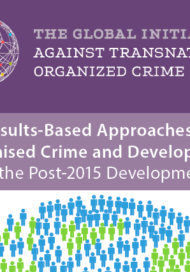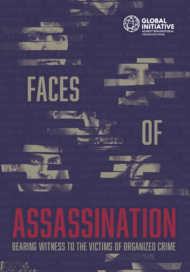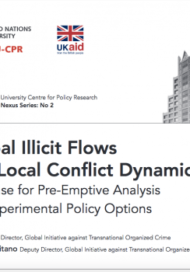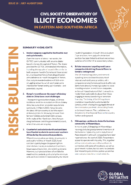Posted on 27 Jan 2014
[Analyzing Organized Crime brief covering key events in January, explores what makes an appropriate and effective punishment for those who commit organized criminal acts?
Escalating levels of violence in prisons and the growing use of the death penalty for drug trafficking offenses – including four executed this month, and a further 30 sentenced – calls into question the efficacy of the criminal justice response. But what works instead?
The UN Security Council has, for the first time, deployed sanctions against criminal groups for wildlife crimes in two fragile states – the Central African Republic and the Democratic Republic of Congo. This is a strong message being sent on behalf of the international community – and it reinforces the growing awareness of wildlife crime being close to the tipping point of irreversible damage to key species and habitats. But is it really an effective response that will stop the chronic poaching of ivory and trafficking in minerals that is fueling and perpetuating conflict?
And what is the result if the state cannot get control of organised crime? This month, militia groups in Mexico took on some of the key DTOs, with the tacit approval of the Government. But this is a risky strategy, that requires careful watching, for fear these armed militia groups do not become co-opted by crime themselves.
Finally we highlight a growing trend of piracy in South East Asia, particularly in the territorial waters of the Philippines. As the military intervention and the increase in private security finally succeed in reducing Somali piracy, is this going to be the next theater for maritime crime?
We hope you enjoy find his edition of Analyzing Organized Crime both interesting and useful. We always welcome feedback at secretariat@globalinitiative.net.



